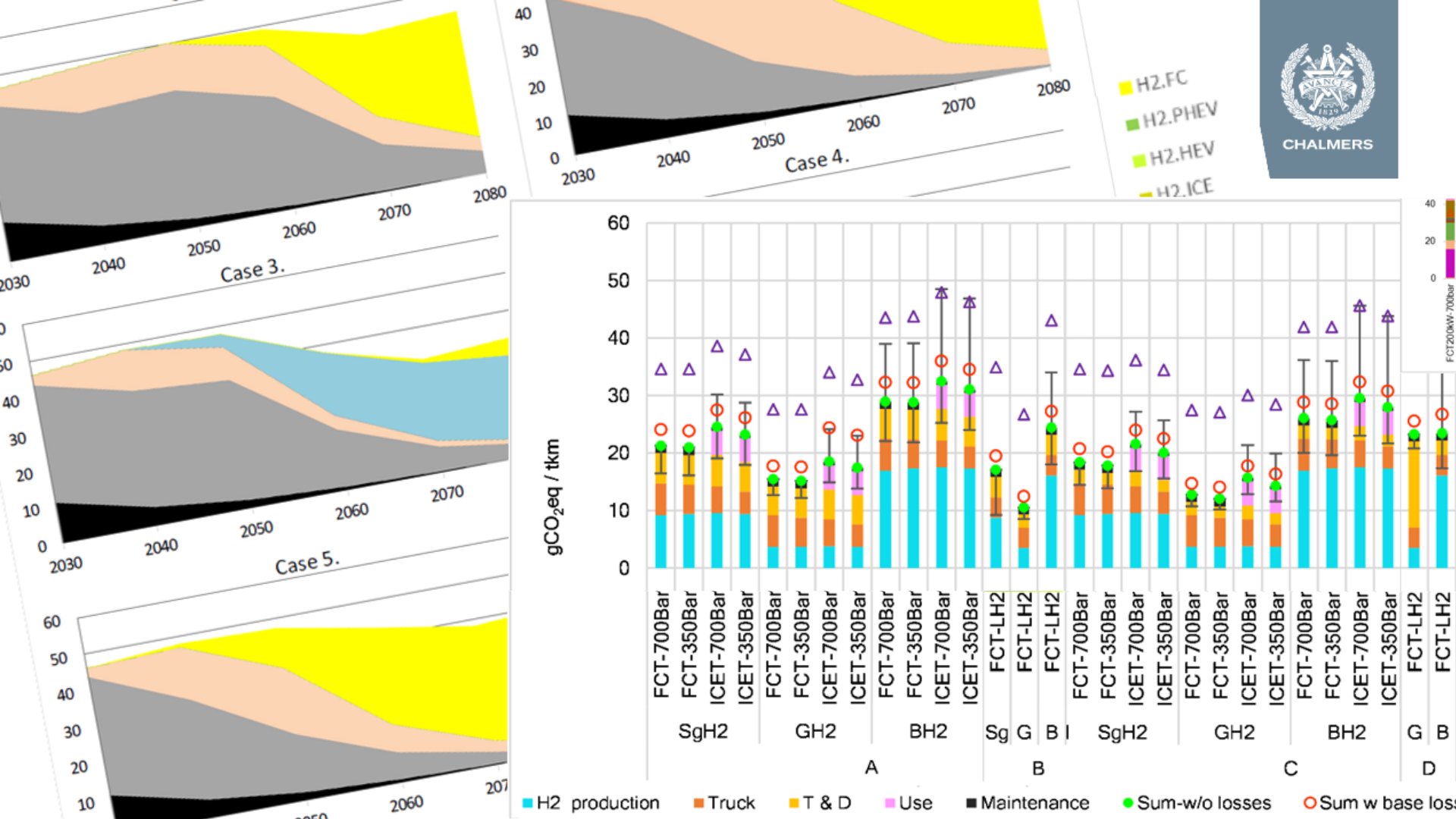Analysis of hydrogen truck supply chains — from production methods to cost-effective fuels
Environmental and Economical Feasibility
Chalmers University of Technology & RISE Research Institutes of Sweden
Hydrogen-powered trucks are a promising path toward decarbonizing long-haul transport, but their cost and climate impact depend strongly on how hydrogen is produced, delivered, and used.
Environmental performance
This study (Velandia et al., 2025) uses life cycle assessment (LCA) to estimate the environmental footprint of hydrogen trucks per ton-kilometer in Sweden. Several supply chain scenarios were modelled, covering early and mature markets, centralized and on-site electrolysis (powered by renewables or grid electricity), and steam methane reforming with CCS. Different truck configurations were also assessed, varying hydrogen storage type (liquid or gaseous, 350/700 bar), and battery–fuel cell sizing.
Results show vehicle design can change emissions by up to 50 tCO₂eq per truck-km. Electrolytic hydrogen from Sweden’s grid performs better than blue hydrogen in most cases. High leakage (≈30%) nearly doubles the footprint of green hydrogen, while limited tanker capacity reduces the benefit of importing hydrogen from abroad. Larger tanker payloads could, however, significantly improve performance.
These results guide truck manufacturers and policymakers toward configurations and supply chains with the lowest climate impact.
Economical feasibility
Hydrogen price depends on capital and operational costs, taxes, subsidies, and electricity source. This techno-economic assessment (Grahn, 2025) applies the Global Energy Transition (GET) model to study future cost-effective fuels for heavy-duty transport.
The model projects that diesel will be phased out, while renewable liquid fuels coexist with hydrogen options. From mid-century onward, hydrogen—especially in fuel cells—becomes the most cost-effective global solution. Across all tested uncertainties, hydrogen remains a key option for decarbonizing heavy trucks.
Related publications
Velandia Vargas, J.E. et al. (2025). iScience — Life cycle assessment: Hydrogen for long-haul trucks.
Grahn, M. (2025). HyTruck Report — Cost-effective fuel choices for trucks.
Farabi, H. (2025). HyTruck Reports — Techno-economic analysis & business models for H₂ refuelling stations.
Contact:
Chalmers University of Technology
https://www.chalmers.se/en/
Division: Transport, energy and environment https://www.chalmers.se/en/departments/m2/research/transport-energy-and-environment/
Maria Grahn’s profile: https://www.chalmers.se/en/persons/np97magr/
maria.grahn@chalmers.se
RISE Research Institutes of Sweden https://www.ri.se/en
Unit: Energy System Analysis https://www.ri.se/en/expertise-areas/expertises/energy-system-analysis
Hadi Farabi’s profile: https://www.ri.se/en/person/hadi-farabi-asl
hadi.farabi.asl@ri.se
